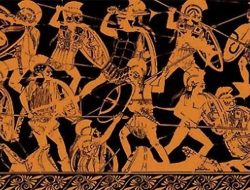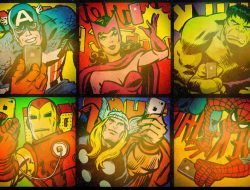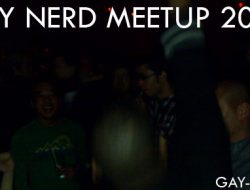The tragic shooting in Arizona is past weekend has brought up a storm of controversy over politicians and political pundits, their rhetoric, and whether or not they intended to incite violence. In case you’ve avoided all contact with television, newspapers, and the internet in the last few days, here’s the story. A man in Tucson, Arizona opened fire on a crowd, killing six people and injuring at least a dozen, including Arizona Congresswoman Gabrielle Giffords. While most reporters argued the merits of responsible messages from the media, the influences in question quickly brought up memories of other violent incidents supposedly sparked by the media for two of the Gay-Nerds contributors, SweetDee and Dryden.
SweetDee: “Like a lot of people, I was glued to my computer after I heard news of the shootings in Arizona, and I noticed the almost immediate backlash against the violent rhetoric used in recent elections by Sarah Palin and other right-wing politicians. One of the prime examples cited was (and is) the “Take Back the 20” target map which features crosshairs placed over the districts of twenty House Democrats and implores the viewer to “take a stand” against them. Congresswoman Gabrielle Giffords, the presumed target of Saturday’s attack, is listed among the twenty.
We still don’t have all the facts of the case, including the motivation of the gunman, but it certainly isn’t hard for people to see some sort of connection between the implied violence of using crosshairs to mark a political opponent and the realized violence of the shooting itself. Many news sources are even reporting that versions of the map are being “scrubbed” from SarahPAC sites. I know I saw a connection between them and it prompted a visceral reaction from me, part of which can be seen in the forums, but I also felt a sense of familiarity. How many times have people seen the connection between violent video games and school shootings? Between heavy metal and Satanism? Between comic books and homosexuality? And how many times have the consumers of those products laughed off any so-called connections as ridiculous and ignorant?
Again, I count myself among the ranks, and clearly there are differences between blowing up a pixelated helicopter with a pixelated RPG and putting a real flesh and blood person on a political “hit list,” gun sights and all, but what about shooting a pixelated parody of a real person with a pixelated gun? Is it possible for one to be considered acceptable or harmless while the other must be regarded as incendiary? Personally, I think the US versus THEM mentality of our society poses more problems than the violence present in video games and political rhetoric combined which is why I feel the need to turn the mirror inward. Is it possible that violence in video games contributes to a larger culture of violence? Are there connections to be made? These aren’t easy questions to answer, but I feel we do a disservice to ourselves by not asking them or glossing over them when other people bring them up.
However, I feel the need to say that I don’t think things are getting worse. A lot of the time, one part of the “video games are bad” argument is the idea that violence in video games is another symptom of a devolving society. That people now aren’t as good as people then, and all you have to do is look at some teenager killing civilians in GTA to prove it. That, I feel, is bunk, and if we ever do decided that violence in video games is a problem (in whatever capacity), I think it will be viewed as an impediment to things getting better as opposed to some sort of sign that people are getting worse.”
Dryden: “After the senseless violence this past weekend, it’s tough to get away from the accusations of propaganda campaigns pushing listeners towards political slaughter. but the argument of whether or not Palin’s ads, or anyone else’s, were influences in the shooting is neither gay nor nerdy, so it doesn’t really have a place on this site. But it does bring up something all nerds are familiar with since the days of trying to get double flawless fatalities on the pit stage of Mortal Kombat – the influence of violent media.
In almost all cases, it has been shown that the protective factor against violent media is the ability tell the difference between images on a screen and real life. Despite how people may come off on the internet, most people are reasonable and relatively nonviolent. Stop laughing. I promise, it just doesn’t seem that way since unreasonable, violent people are much more interesting to watch on the news. The problem lies when people *cannot* understand that difference, and when a larger environment of violence and aggression enables things to be taken too far. That is when tragedy strikes, not because someone’s delicate psychological condition has been manipulated by evil corporate Jedi trying to prey on helpless masses, but because of a single person unable to control their own life to such an extreme degree that this sort of murderous nonsense seems reasonable. It may even seem “righteous” in some twisted sense.
So if all that is true for rap music, M rated games, and movies starring (insert action hero), can it be equally true for political rhetoric? the answer cannot be a clear cut yes or no. If there is a difference, it lies in the intent of the violent message. With few exceptions, generally violent media doesn’t direct the aggression towards real people. GTA only gives you the option to barricade the streets with stolen cars and have a shootout with a SWAT team. You chose to do it. So does suggesting “second amendment remedies” for things you disagree with or putting cross hairs over the home states of political opponents count as prescribing violence, or was it just astoundingly poor timing?”
Share your thoughts in the forums.
Tags: Arizona, media influence, political ads, politics, rhetoric, Shooting, violent video games





















